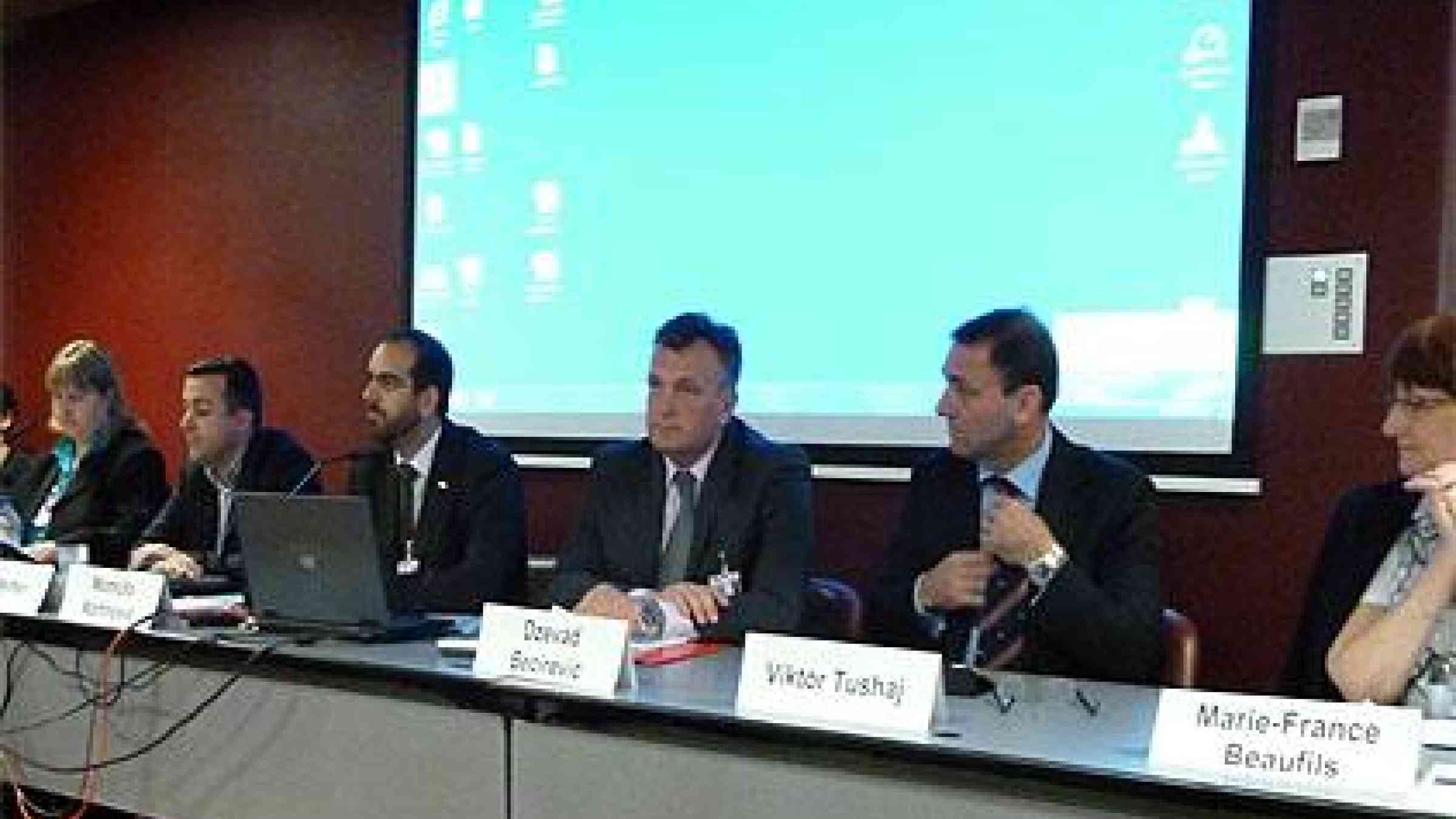Open debate on “Disaster risk reduction measures at the local level in South Eastern Europe”

GENEVA, 21 May 2013 - On the opening day of the Global Platform for Disaster Risk Reduction, Mayors and local government representatives took part in an open debate on ‘Disaster Risk Reduction Measures at the local level in South Eastern Europe”.
Floods, droughts and forest fires – all of which are cross-border hazards – are the main risks in South Eastern Europe, and projections indicate that climate change and variations could lead to more frequent and severe disasters related to weather, water and climate in the region.
Set against this background, the discussion revolved around the following topics: The main disaster risks faced in relation to natural hazards in cities and communities; the prevention and risk reduction measures adopted by local administration to mitigate the impact of disasters; and the main challenges and lessons learned in managing disaster risks.
Participants included mayors and local government representatives from: City of Lezhe (Albania), Mr. Viktor Tushaj; City of Sarajevo Centar (Bosnia and Herzegovina), Mr. Dzevad Becirevic; City of Dubrovnik (Croatia), Ms. Anita Buric; City of Cetinje (Montenegro), Mr. Momcilo Martinovic; City of Pristina (Kosovo under UNSCR 1244/99), Dr. Avdullah Hoti; and City of Saint-Pierre-des-Corps (France), Ms. Marie-France Beaufils.
The mayors of Lezhe and Cetinje also took the opportunity to join the UNISDR 2010-2015 Campaign “Making City Resilient: My City is Getting Ready”, signing the Campaign Certificate in the presence of Ms Helena Molin Valdes, UNISDR Deputy Director and Head of the Campaign.
The moderator Ms. Helena Molin Valdes, UNISDR Deputy Director and Coordinator of the global UNISDR Campaign “Making City Resilient: My City is Getting Ready” said: “It is important to build partnerships at international, regional and national level to support the capacities of local decision makers in disaster prevention and risk reduction. Sharing the experience and expertise among cities, and linking this work to urban development plans and challenges, is an important way of improving and innovative new solutions. The forum today is an example of successful partnership between the European Commission, UN Organizations and Local Governments. As a result, the exchange of ideas and knowledge has led to strengthened networking and collaboration among European cities and mayors.”
The participants are part of the regional project “Building Resilience to Disasters in Western Balkans and Turkey,” a regional intervention implemented and co-funded by the UN Office for Disaster Risk Reduction (UNISDR) and the World Meteorological Organization (WMO). The project is supported by European Commission's Directorate General for Enlargement, under the Instrument for Pre-accession Assistance (IPA).
This initiative aims to strengthen national disaster risk management, along with meteorological and hydrological services. The three main areas of work include: Building and enhancing regional networking and co-ordination for disaster risk reduction at national and local level; strengthening cross-border co-operation on disaster risk management; and increasing regional capacity to monitor and predict hydro-meteorological hazards.
More information can be found at the project website: http://www.preventionweb.net/ipadrr/